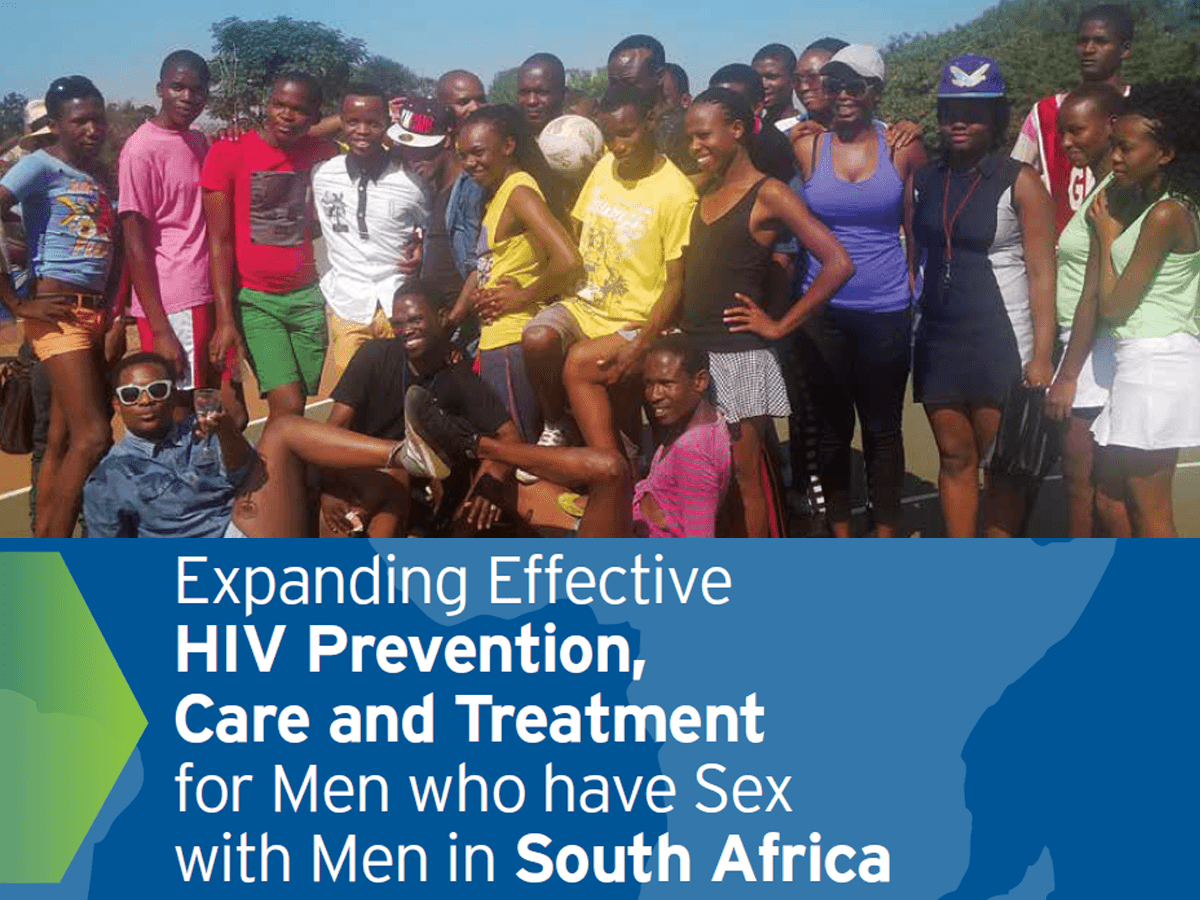Men who have sex with men (MSM) worldwide are disproportionately impacted by HIV. South Africa is no exception—while exact data is scarce, an estimated 13 to 49 percent of MSM are HIV-positive, a rate nearly five times higher than their non-MSM counterparts. High HIV prevalence can be attributed to a combination of individual, social, and structural risk factors. Yet comprehensive, quality prevention services targeting MSM remain inadequate. MSM are also not engaged in HIV care and treatment in proportion with their need in either metropolitan or low-density and rural areas. Persistent stigma and discrimination, including in health care settings, routinely keep MSM from accessing services. Despite concerted efforts, health care workers continue to operate within a predominantly heteronormative environment, and are not yet able to meet fully MSM-specific clinical needs or provide sufficiently culturally sensitive, relevant, acceptable, and confidential services. Cultural stigma prevents many MSM from self-identifying as men who have sex with men and seeking needed services, particularly from LGBT-focused organizations.
In South Africa, policies and public health programs have evolved to respond more closely to the needs of MSM. The National Strategic Plan on HIV, STIs and TB (2012-2016) encourages the scale-up of efforts to target key populations at high risk of HIV, including MSM. Targeted efforts are beginning to show results: the number of MSM tested for HIV and the number of MSM reporting correct and consistent use of condoms and compatible lubricant are on the rise,2 yet HIV prevalence among MSM remains high. The South African National AIDS Council-led South African National LGBTI HIV and Human Rights Plan is a further commitment by the Government of South Africa to MSM programming in the coming years.
ICAP has partnered with South Africa’s Department of Health since 2004 to provide technical assistance and implementation support for HIV services, training and education, and research.




